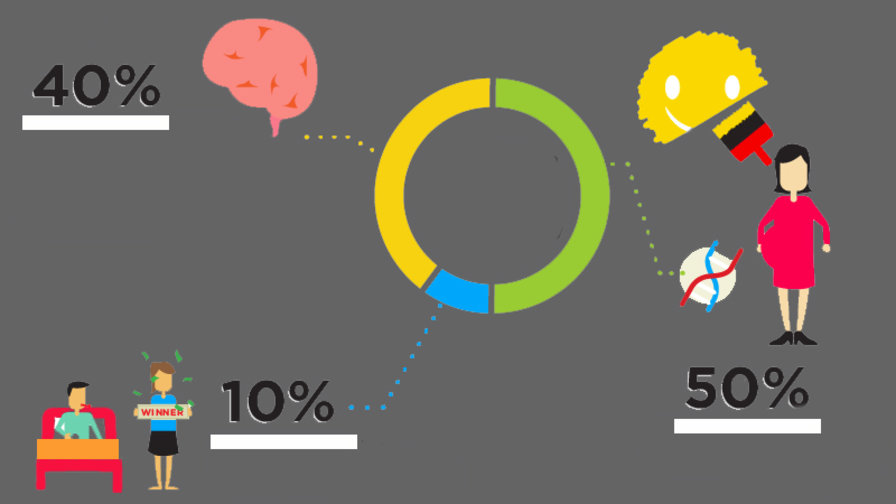
Date: 2024-12-21 Page is: DBtxt003.php txt00014649
Happiness
Everything you should know
Everything you should know about happiness in one infographic
Burgess COMMENTARY
Peter Burgess
Everything you should know about happiness in one infographic

We often talk about happiness, yet rarely take the time to define it. And that’s probably because it is incredibly difficult — each scientific discipline has its own take on it.
From a philosophical perspective the concept of happiness is often related to living a “good life”, flourishing, virtue, and excellence, rather than to experiencing an emotion. To psychologists happiness is an emotional and mental state of well-being related to experiencing positive emotions but also to a sense of meaning and satisfaction from life.
Economists are also interested in happiness and have developed numerous surveys, indices, and equations to let us know which nations and people are the happiest. Besides the subjectively reported levels of happiness (towards which they are understandably suspicious), economists believe that factors like individual income, social security, employment, relationships, children, freedom, and leisure, have a big impact on our happiness.
In 2012, the UN started publishing an annual World Happiness Report - a survey of the state of global happiness that ranks 155 countries on six key indicators: freedom, generosity, health, social support, income, and trustworthy governance. By these measures, Norway, Denmark, and Iceland took the top spots in 2017. The US came 14th.
But our national level of happiness does not necessarily translate into a personal one. According to psychologists, circumstances are responsible for only about 10% of our personal levels of happiness. Studies have shown that regardless of what happens to people - winning the lottery or losing a limb - their happiness levels tend to return to what they were before the event in about two months. This phenomenon is called the hedonic treadmill or hedonic adaptation.
Researchers say that another 50% of our happiness is determined by our biology, and more specifically, genetically determined personality traits like 'being sociable, active, stable, hardworking and conscientious.' Twins who had similar scores in key traits — extroversion, calmness and conscientiousness, for example — had similar happiness scores, but these similarities disappeared once the traits were accounted for.
Not all is lost, however. 40% of your happiness is determined by your thoughts, actions, and behaviours. According to Buddha, this is enough to liberate you from suffering, if you channel this potential in the right thoughts, actions and behaviours. Science agrees -- there is a lot you can do to influence your happiness levels.
Happify, a company dedicated to helping people live happier lives, has created a wonderful infographic summarizing the most relevant research on happiness and what you can do to increase it. See it below.
If you like it, you may also enjoy their infographic on Happy Relationships. (See #14650)